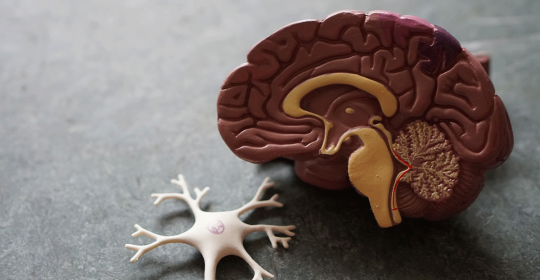
Parkinson’s Disease – A Progressive Neurological Disorder
Delving deep into the field of neurological science, you may come across several types of nervous system disorders. A certified neurologist is concerned with the study, diagnosis, and treatment of the complex nervous system disorders. The nervous system is responsible for the regulation and coordination of all body activities. Neurological diseases include movement-related disorders such as Parkinson’s disease.
Parkinson’s Disease
Is a neurodegenerative disorder and adversely affects the brain. Parkinson’s disease is termed as a progressive illness related to body movement function that is controlled by the nervous system. Starting with a slight tremor in one hand, it can progress to cause stiffness and slowing down of your body movements.
Parkinson’s Symptoms
• Tremor – Experiencing a slight shaking or tremor in your hands, leg or fingers can be the beginning of the disease in its early stages.
• Clumsy Movements – The illness can slow down your movement. For instance, you may take small and slow steps while walking or you may even drag your feet while walking.
• Rigidity – You may feel stiffness and pain in the muscles that restrict your motion. The disease can affect your posture and balance.
• Automatic Motions – Your automatic or unconscious movements such as smiling and swinging arms while walking may be lost. Likewise, you may feel noticeable changes in speech like slurring or improper speech.
• Writing Abilities – You may experience difficulty in writing and your writing may be unreadable or very small.
Parkinson Complications
The actual cause of the disease is unknown. Sadly, there are no concrete curative remedies or treatment for the condition. Oral medications, invasive and non-invasive treatments may help but they cannot cure the disease completely. Parkinson’s disease is not fatal, but it may lead to many serious health complications.
Related complications also include dementia (thinking issues), emotional changes, depression, difficulty in swallowing, difficulty in chewing food, sleep disorders, bladder issues, and constipation.
Causes & Factors Leading to Parkinson
When you develop Parkinson’s disease, the neurons in your brain may slowly break down and die. Loss of neurons, which produce dopamine chemicals is one of the main reasons for abnormal brain activities.
Other factors that play a major role in causing the symptoms:
• Genetic – Scientific researchers have found that specific genetic mutations may cause the development of Parkinson. Cases wherein many of the family members have been affected by Parkinson’s disease can significantly increase the chances of the younger generation from the same family contracting the disease.
• Environmental Changes – Exposure to toxic materials and environmental pollutants may also increase the risk factor of developing the disease.
• Age – Parkinson’s disease typically begins in the people who are middle-aged or older. The risk factor increases with advancing age.
• Sex – Men are at a higher risk of developing Parkinson’s symptoms as compared to women.
Prevention
Doctors and researchers feel that performing aerobic exercises can decrease the risk of Parkinson’s. Studies also indicate that people who drink caffeine (tea and coffee) are less likely to get the disease when compared to those who do not drink caffeine. However, it is still to be proven that caffeine actually protects people against the disease.
Parkinson Treatment
Treatment procedures are based on the diagnosis of the symptoms. Managing the symptoms with medications can help the patient to control the tremors, relieve stiff muscles, and speed-up body movements. Doctors or therapists in Dubai may advise you to start drug therapy, physical therapy, speech therapy or occupational therapy. Deep brain stimulation may be suggested by doctors. In severe cases of advanced Parkinson’s disease, doctors can also recommend surgery.
FAQs
What are the five stages of Parkinson’s disease?
The five stages of Parkinson’s disease are called Hoehn and Yahr. Stage one showcases the symptoms affecting one side of the body. In stage two, the symptoms affect both sides of the body with no deterioration or loss of balance. Stage three reveals balance impairment but the person may be physically independent. Stage four depicts a grave disability of movement but the person may still walk unassisted. In stage five, the condition deteriorates further and the person is bound by the wheelchair or bedridden.
Mention the early signs of Parkinson’s?
Bad handwriting changes, a slight tremor in hand or foot, stiffness of limbs, vocal changes, setting of rigidity in the face muscles, uncontrolled sleep movements, and stooped or bent posture are all early signs of Parkinson’s disease.
What foods should Parkinson’s patients eat?
If you suffer from Parkinson’s disease, it is best to have a variety of foods. You need to include lots of fiber in your food and eat whole grain products like brown rice, whole wheat bread, oats, and crackers.

